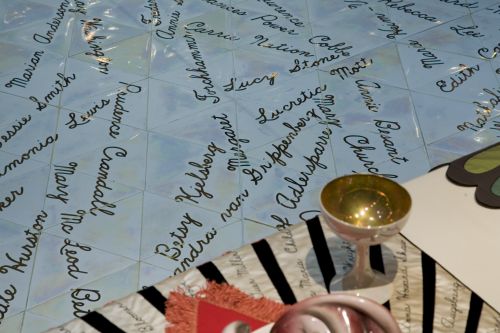Jovita Idar
b. 1885, Laredo, Texas; d. 1946, San Antonio
By the beginning of the twentieth century, the economic and political status of Texas Mexicans had reached a state of crisis. Lynchings, beatings, civil rights violations, encroachments on land ownership, increased exploitation of workers—all combined to mobilize Mexican American communities in defense of their historic rights. The Idar family—Nicasio and his nine children, including Jovita—spearheaded this mobilization. Based in Laredo, Texas, the Idars were actively involved in working-class and feminist struggles and cultivated cross-border alliances with the Mexican revolutionaries waging war against the dictatorship of Porfirio Díaz. Their newspaper, La Crónica (1909–?), was at the forefront of civil rights advocacy. In 1911, Jovita, a teacher and journalist, penned a series of editorials in which she denounced the oppressive authority of the Catholic church over women’s lives, calling on women to organize collectively on behalf of themselves, as workers and as Mexicans. That same year, the Idars convened the first Congreso Mexicanista (Mexicanist Congress) in Laredo, attended by 400 Texas Mexicans and residents of Mexican border towns. The participation of women in the congress led to the establishment of a women’s auxiliary, La Liga Feminil Mexicanista (League of Mexican Women), with Jovita as president; the group’s principal effort was the provision of education for poor children. In 1914, she crossed the border to serve the Mexican Revolution as a nurse for La Cruz Blanca (White Cross). Upon her return, she joined the editorial staff of the newspaper El Progreso and wrote searing reports on lynchings of Mexican immigrants perpetrated by the Texas Rangers. The Rangers shut the paper down when she offended the Wilson administration with an editorial protesting the dispatch of U.S. troops to the border. She married in 1917 and moved to San Antonio, where she maintained an active public life as a journalist, teacher, and political organizer for the Democratic party.

Related Place Setting
Related Heritage Floor Entries
- Anaconda
- Awashonks
- Maria Bartola
- Ana Betancourt
- Capillana
- Rosa Chouteau
- Josefa de Dominguez
- Isabel de Guevara
- Juana de la Cruz
- Ehyophsta
- Candelaria Figueredo
- Maria del Refugio Garcia
- Marie Iowa
- Kaahumanu
- La Malinche
- Maria Montoya Martinez
- Carlota Matienzo
- Luisa Moreno
- Mary Musgrove
- Isabel Pinochet
- Pocahontas
- Magda Portal
- Maria Luisa Sanchez
- Laura Torres
- Ojelia Uribe de Acosta
- Saaredra Villanueva
- Andres Villareal
- Teresa Villareal
- Nancy Ward
- Wetamoo
- Sara Winnemuca
- Xochitl